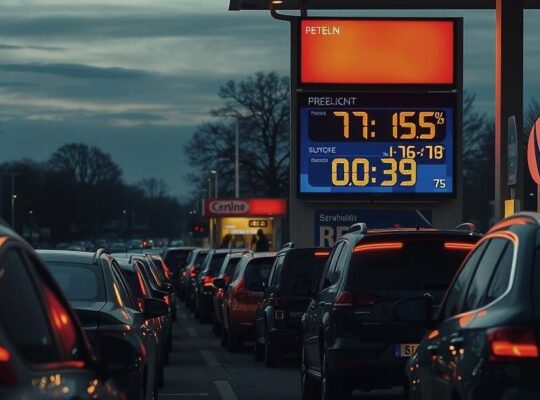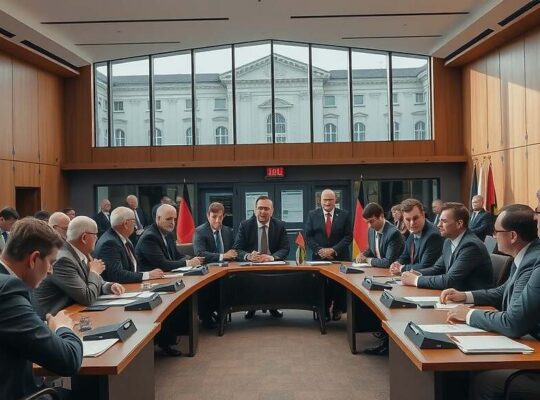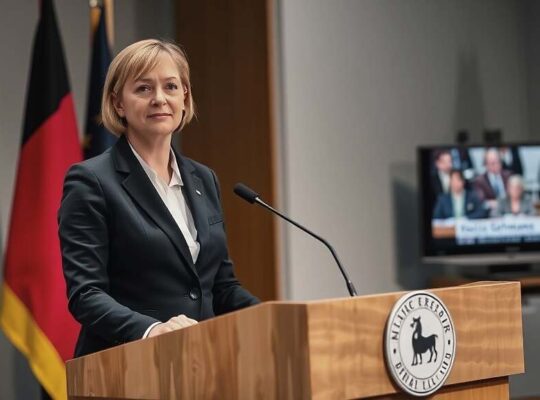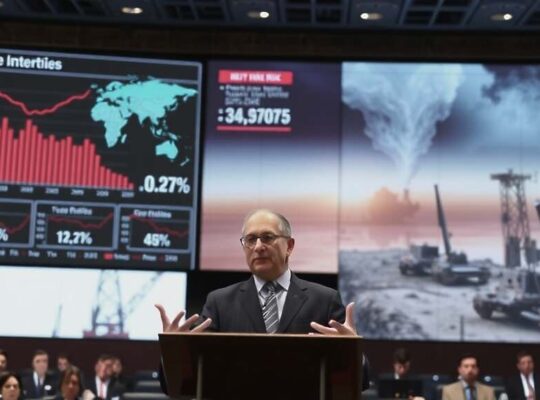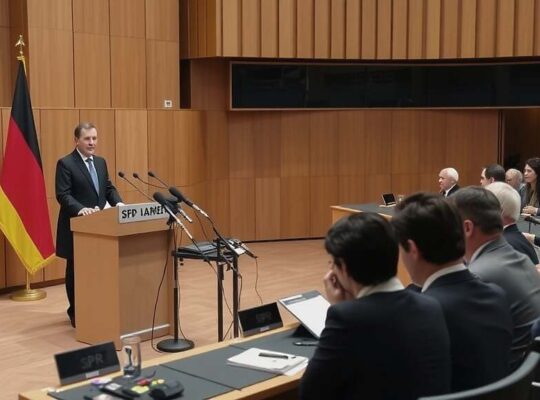The Alternative for Germany (AfD) continues to hold a commanding lead in voter preference, according to the latest Forsa poll, securing 26% of support. This maintains the party’s position as the strongest political force in the nation, a trend increasingly challenging the traditional dominance of the Christian Democratic Union (CDU). The CDU, led by Chancellor Friedrich Merz, lingers at 24%, further cementing the AfD’s ascendancy and raising concerns within conservative circles. The Social Democrats (SPD), the Green Party and the Left party trail significantly behind, each registering 13% and 12% respectively, highlighting a deepening fragmentation within the German political landscape.
Crucially, a substantial 23% of respondents identified as non-voters or undecided, a figure that underscores a pervasive disconnect between the established political elite and a significant portion of the electorate. This apathy, coupled with the AfD’s appeal, signals a potential for further political realignment and instability.
Chancellor Merz’s approval rating has plummeted to an alarming low, with only 25% of those surveyed expressing satisfaction with his performance. An overwhelming 71% now indicate dissatisfaction, a stark indicator of dwindling public confidence in the current government’s direction. This decline could be attributed to a constellation of factors including perceived inaction on pressing economic anxieties and a growing disconnect between the government’s agenda and the concerns of everyday citizens.
Economic pessimism remains deeply entrenched amongst the German populace. A discouraging 62% anticipate a worsening of the economic situation, while only 18% predict an improvement. While the latest figures represent a marginal uptick from previous weeks, the outlook remains firmly in negative territory, exacerbating anxieties surrounding inflation, energy costs and the ongoing impact of geopolitical instability.
Reflecting the significant anxieties driving public sentiment, the war in Ukraine and developments in the Middle East remain the most pressing concerns for Germans, each drawing 36% of respondent attention. Concerns about the efficacy of the federal government’s work (29%) and the broader economic outlook (25%) round out the top issues, demonstrating a profound sense of unease and a demand for decisive and impactful leadership. The survey, conducted between October 7th and 13th, 2025, encompassed a sample of 2,500 participants, providing a snapshot of a nation grappling with complex and interconnected challenges.




